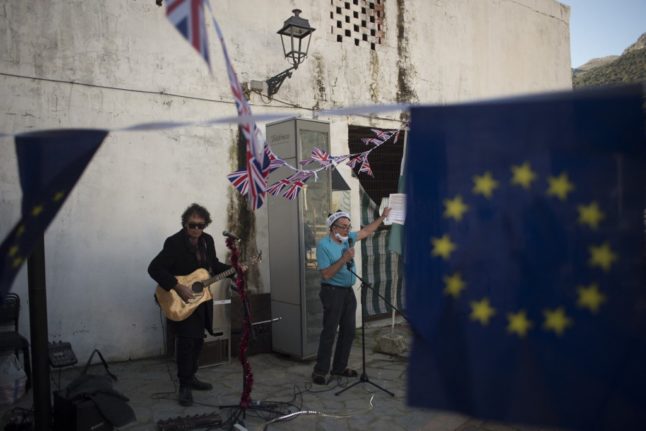[ad_1]
“I am sad to be leaving but it is the right time. All the problems of Brexit bureaucracy mean it is the right time to return to the UK.”
These were the words of a British woman who had spent more than 15 years living outside the system in Spain, without ever registering with the authorities or ever opening a bank account.
When she needed healthcare, she resorted to the E111 tourist health card.
Contrary to the cliché, she was not a retiree sipping gin and tonics on the Costas, but a woman in her 40s who lived in Barcelona. She did not want to be named.
She had slipped through the net of UK nationals which British diplomats were trying to reach.
From car boot sales to pop-up events outside supermarkets or Facebook, they used every means to get the message over: if you want to stay on in Spain once the Brexit drawbridge comes down, register for residence.
It has not been an easy job.
Over the past four years, the sheer numbers of British people living in Spain have made this a marathon task.
Spain has by far the highest contingent of British residents in the European Union.
By the latest count, there are 366,000 UK citizens registered with the Spanish government, some 75,000 more than before the Brexit referendum in 2016.

Some 50 per cent of these are retired or people who have chosen to retire early to enjoy life under the Spanish sun.
This presented a problem in itself as some of these did not have a good command of Spanish or struggled with being isolated or having disabilities.
So, as the torturous negotiations between London and Brussels progressed , an equally tough task befell UK diplomats to try to prepare Britons for the afterlife – that time after Brexit.
Despite all the odds, it seems to have gone fairly well.
A recent internal Foreign Office poll found that Britons living here were among the best informed about what they needed to do to stay on in Spain, compared to other UK residents scattered across Europe.
However, the same survey also found that two other issues which concerned Britons was bureaucracy, which many who live in Spain will know well, as well as the language barrier.
Diplomats and agencies they have been working for have been trying to reach those who do not speak Spanish well or those who struggled to wade through the mountain of forms which have to be filled in to attain the Holy Grail – residency.
Hugh Elliott, British Ambassador to Spain and Andorra, said: “Spain has by far the largest number of UK residents in the EU so I, together with Embassy and consulate staff, have been working hard to make sure that all British people who live in Spain had official information and understood what actions they needed to take to protect their rights under the Withdrawal Agreement.”
Mr Elliott said the British government had worked with the Spanish authorities and 400 partner organisations, charities and community groups to get the message across.
A key player was the UK National Support Fund, which is funded by the British government, but run in Spain by Age, the Association Babelia and the International Organisation for Migration.
READ MORE
Some 126,000 British nationals have taken advantage of these services which include online support or a telephone helpline.
About 3,000 Britons have been helped with their residency applications. They have submitted 1,000 applications on behalf of British residents in Spain.
Despite all this, many Britons still seem confused about what the future holds.
Since January 1st, British nationals who do not have residency – or are not in the process of applying for this – can only stay in Spain for up to 90 days out of every 180.
Without a visa, those who stay on living under the radar may face problems if they want to access public services in Spain.
A spokesman for Spain’s Interior Ministry told me that those British nationals who do not apply for residency will be “advised of the situation”.
“We will act with proportionality,” he said.
It does not seem that stories of Brits being deported from Spain are likely to happen.
[ad_2]
Source link